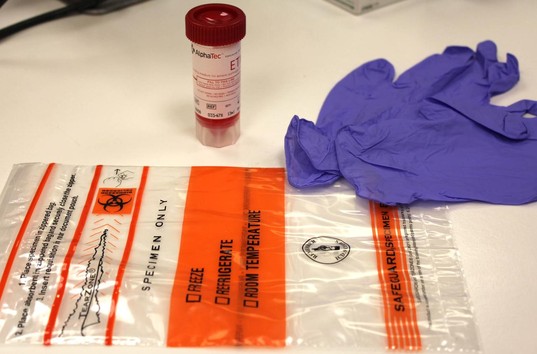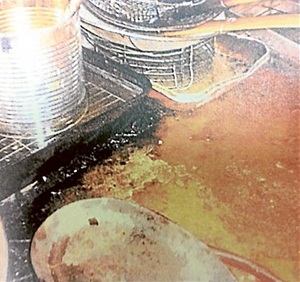
Another in the weekly we’ve-been-doing-it-this-way-all-our-lives-and-never-got-sick declarations from a restaurant tentatively fingered in an outbreak of illness.
The Hickory Daily Record reports 40 people have complained to officials at Catawba County Public Health that they got sick after eating a meal at Conover’s Harbor Inn Seafood restaurant.
One thing the victims have in common is that they ate at Harbor Inn on Jan. 13.
Health officials are working to determine what the illness is and what caused it, said Catawba County Public Health Outreach Manager Amy McCauley
The first complaints came in on Jan. 17. As of Monday, 40 cases had been reported. None have  required hospitalization, said Catawba County Health Director Doug Urland.
required hospitalization, said Catawba County Health Director Doug Urland.
“Our Environmental Health workers have been to the restaurant almost every day to investigate and educate the staff about proper food handling techniques and to make sure they are stringent about safe food handling techniques,” McCauley said.
George Ziogas owns the Conover Harbor Inn and said he has no idea why some of his customers got sick following their Friday the 13th meal.
“The Health Department came in and they could not find anything. All of the food temperatures were OK. All of the salad bar temperatures were OK,” he said. “We’ve been open for 23 years and we’ve never had a problem.”
Recent inspection results have given Harbor Inn consistently high marks.
The most recent inspection came on Dec. 29 and Harbor Inn got an A with a score of 99.5. Three months earlier the restaurant scored 99.5. In June, Harbor Inn earned a 100.5.
“I want people to know we’re going to be here a long time – we’re not going anywhere – we’ve been here 23 years and this was a one-time incident,” Ziogas said.
“I eat here all the time and I like the food – if I didn’t, I wouldn’t come back,” said Cora Greene, of Mountain View, on Tuesday, after sharing a meal of whitefish with her son. “This can happen anyplace, but I’ve never gotten sick. I’ll be back.”
Health officials are working to identify the mysterious illness and its cause, but won’t speculate on what it may be.
On Friday, Catawba County Public Health began distributing stool sample kits to the victims of the illness at the request of the North Carolina Division of Public Health. The people complaining of illnesses related to Harbor Inn meals have been instructed to use the kit and return it to Catawba County Public Health, which will then send the kits to the state lab for testing.
It takes about a week to process the tests, and it won’t be clear what’s been making people sick until the results are in.
None of the distributed kits had been returned to Catawba County Public Health as of Tuesday, McCauley said.
The symptoms associated with the Harbor Inn outbreak are intense nausea, vomiting and diarrhea. The onset came within 12 to 24 hours following the Jan. 13 meal and lasted from 24 to 36 hours for most of the victims, according to reports from Catawba County Public Health.

(1).jpeg) overhaul of the business’s food-handling procedures.
overhaul of the business’s food-handling procedures..jpg) egg rolls."
egg rolls." the cooler, but the risk to public health is very low, the Department of Health said in a statement.
the cooler, but the risk to public health is very low, the Department of Health said in a statement. proof.
proof..png) Corinth, Miss.”
Corinth, Miss.” unsafe food handling.
unsafe food handling. bent forward and facing downward in a cage, with only a carrot given as food.
bent forward and facing downward in a cage, with only a carrot given as food.(3).jpg) worker’s infectious period.
worker’s infectious period. faire, to say the least.
faire, to say the least. consumers who get food poisoning from restaurants don’t report the incident.
consumers who get food poisoning from restaurants don’t report the incident.